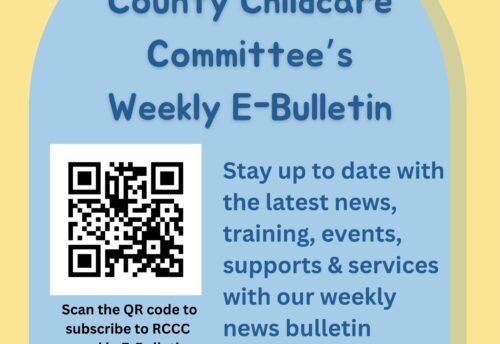Minister Zappone confirms Childcare Programme Support Payments worth over €19m
The Minister for Children and Youth Affairs, Dr. Katherine Zappone T.D., announced details of the forthcoming Programme Support Payment (PSP), due to be made available to all early learning and care providers this summer.
Over €19m will be made available to early learning and care services under the measure from June 2019.
The payment will be calculated as equal to 7 days’ (1.4 weeks’) registrations for ECCE at Standard Capitation, and 14 days’ (2.8 weeks’) registrations for CCS(P) and TEC.
The application window for PSP will open for six weeks from Monday 13 May to Friday 21 June 2019 and the application form can be accessed through the Programmes Implementation Platform (PIP).
Payments will issue the following week.
The Programme Support Payment recognises the additional time required of providers of DCYA-funded early learning and care and school age childcare programmes, to complete the administrative work associated with the scheme. The payment also recognises the time required to perform activities outside of contact time with children, such as preparing materials for early learning and care sessions and assisting parents in understanding how they might benefit from the various childcare schemes supported by the State.
Making the announcement Minister Zappone said:
“For children, parents and providers 2019 is a hugely significant year with the launch of the National Childcare Scheme. As the countdown to October continues it is important that providers are supported to ensure that the biggest change ever undertaken in early learning and childcare becomes a reality. This investment, part of the 117% jump in Government funding since 2015, will help us build a scheme which will serve families in Ireland for generations to come. We have come a long way – and we must never go back!”
As previously announced by the Minister, there will be a further “Transitional Support Payment” of €2m associated with the National Childcare Scheme, in addition to the Programme Support Payment, later in 2019. Further details in relation to this additional €2m will follow shortly.
NB: Please note that the application window closing date (Friday 21 June 2019) is final, and that no applications for PSP will be admitted beyond this point under any circumstances.
ENDS
Notes to editors
ECCE: The Early Childhood Care and Education (ECCE) programme is a universal two-year pre-school programme available to all children within the eligible age range. It provides children with their first formal experience of early learning prior to commencing primary school. The programme is provided for three hours per day, five days per week over 38 weeks per year and the programme year runs from September to June each year.
CCS: The Community Childcare Subvention (CCS) Programme is a childcare programme targeted to support parents on a low income to avail of reduced childcare costs at participating community childcare services. The Department of Children and Youth Affairs (DCYA) pays for a portion of the childcare costs for eligible children, a payment described as a subvention payment, with the parent paying the remainder.
CCSP: The Community Childcare Subvention Plus (CCS Plus) Programme, similar to normal CCS, provides support for parents/guardians on a low income to avail of reduced childcare costs at participating privately owned childcare services and at community not-for-profit childcare services.
TEC: The objective of the Training and Employment Childcare (TEC) Programmes is to support parents on eligible training courses and eligible categories of parents returning to work, by providing subsidised childcare places.
NCS: The National Childcare Scheme (NCS) will replace the existing targeted childcare programmes with a single, streamlined and more user-friendly scheme. The Scheme will open to applications in October 2019 and aims to:
· Improve outcomes for children
· Reduce poverty
· Facilitate labour market activation and
· Tangibly reduce the cost of childcare in Ireland for tens of thousands of families


Leave a Reply